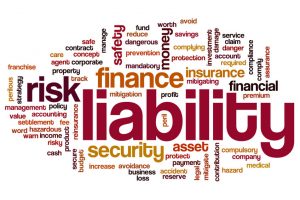
7 of the Most Effective Ways to Protect Your Small Business
Small businesses are the backbone of most economies. They provide employment, support local communities, and contribute to the overall growth of a country. However, many small businesses do not survive for more than five years due to various reasons, such as cash flow problems, lawsuits, fires, wrong marketing strategies, and so on.
Need General Liability Insurance for Your
Business?
Get Your Free Quote
Thus, small businesses need to protect themselves in the most effective way possible. There are many different ways to do this, but we will focus on the most important ones here.
1. Register as a business.
This step seems obvious, but many small businesses operate without getting registered. It leads to numerous problems, such as lack of access to banking or government grants.
Registering as a sole proprietorship doesn’t alienate you from the adverse risks of your business. Your personal property could be liquidated to pay business debts, for example.
Consider forming a limited liability company (LLC) to protect your personal property. LLCs offer protection from creditors and lawsuits because the owners’ assets are separate from the business.
If you’re looking for the highest level of protection, you can form a corporation. A corporation is a legal entity that’s separate from its owners. The owners are not personally liable for the debts and liabilities of the corporation. This option lets you source financial investments and limit your personal liability.
2. Hire a competent account periodically.
Any small business must protect itself by clearly understanding its financial situation. It calls for:
- Knowing how much money is coming in and going out regularly.
- A good handle on your inventory and Accounts receivable/Accounts payable (A/R and A/P).
- Creating financial statements, such as a balance sheet, income statement, and cash flow statement.
Bookkeepers and accountants serve different purposes, and accountants charge more for their time. However, an accountant can save you money in the long run by ensuring your financial statements are accurate and up-to-date. They can also help you take advantage of any tax breaks or deductions for which you may qualify.
3. Get insured
Many small businesses don’t carry insurance, thinking it’s either too expensive or not necessary. But small business insurance is one of the most important ways to protect your business. If something goes wrong, such as a fire or theft, you could be left with significant financial losses.
The types of insurance open to small businesses are so many that it’s confusing, but you can always get the right advice and education when you need it. Make sure you properly insure before something adverse happens.
4. Always vet all your new clients.
The best way to protect your business is to be choosy about the clients with whom you work. Not all clients are created equal. Some will pay their invoices on time, while others will constantly try to negotiate payment terms or delay payments altogether.
Always do your due diligence before working with any new client. You may find credit card payments defaulting and bouncing checks. You can request half the payment upfront or get the client to sign a personal guarantee to avoid such situations.
A personal guarantee is a legally binding agreement that makes the signer personally responsible for repaying a debt if the business cannot. If the client doesn’t pay, you can go after their personal assets, such as their home or savings account.
5. Hire a lawyer.
Hiring a lawyer may seem like an unnecessary expense, but it’s one of the best ways to protect your business. A good lawyer can help you with everything, from drafting contracts to employment law compliance.
Having a lawyer on retainer will save you a lot of money in legal fees if you ever get sued. A lawyer can also help you avoid situations that could lead to lawsuits.
For example, if you’re thinking about opening a new business, a lawyer can help you choose the right legal structure for your business and draft the necessary paperwork.
A lawyer can also help you comply with employment laws and draft employee handbooks for hiring. No matter what type of business you have, a lawyer can help you protect your interests and avoid legal problems.
6. Invest in cyber security.
You need to be aware of the many cyber security threats existing against your small business. Hackers are always looking for new ways to break into businesses and steal data.
Investing in cyber security will help protect your business from attacks. You’ll need to choose the right blend of cyber security products, with so many available that it can be confusing.
Some of the most essential cyber security products include:
A firewall is a piece of hardware or software that helps protect your network from attacks.
- Anti-virus software:
This type of software helps protect your computer from viruses and other malware.
- Encryption:
Encryption is the process of transforming readable data into an unreadable format. It makes it more difficult for hackers to steal your data.
- Passwords:
Using strong passwords is one of the simplest and most effective ways to protect your accounts from being hacked.
- VPNs:
A VPN, or a virtual private network, is a way to encrypt your data and keep your online activity private. It masks your location, so your internet use seems to come from servers of different nations far away from you.
7. Protect your employees.
Love or hate it: employees are the most valuable asset for any business. It helps to protect your employees to protect your business. Here’s how you can do it:
- Offer health insurance:
An ideal way to attract and retain employees is by offering health insurance. This benefit will protect your business from losing talented employees who might otherwise leave for a company that offers health insurance.
- Create an employee handbook:
An employee handbook will help set expectations for your employees and protect your business from legal problems. The handbook should include policies on everything, from attendance to sexual harassment.
- Conduct background checks before hiring:
It will help you avoid hiring someone who might be a risk to your business.
Final Thoughts
These are just some of the ways you can protect your business. By taking these steps, you’ll be well on your way to protecting your business from the many risks. Protecting your business is essential to its success. Don’t wait until it’s too late. Start taking steps to protect your business today.








